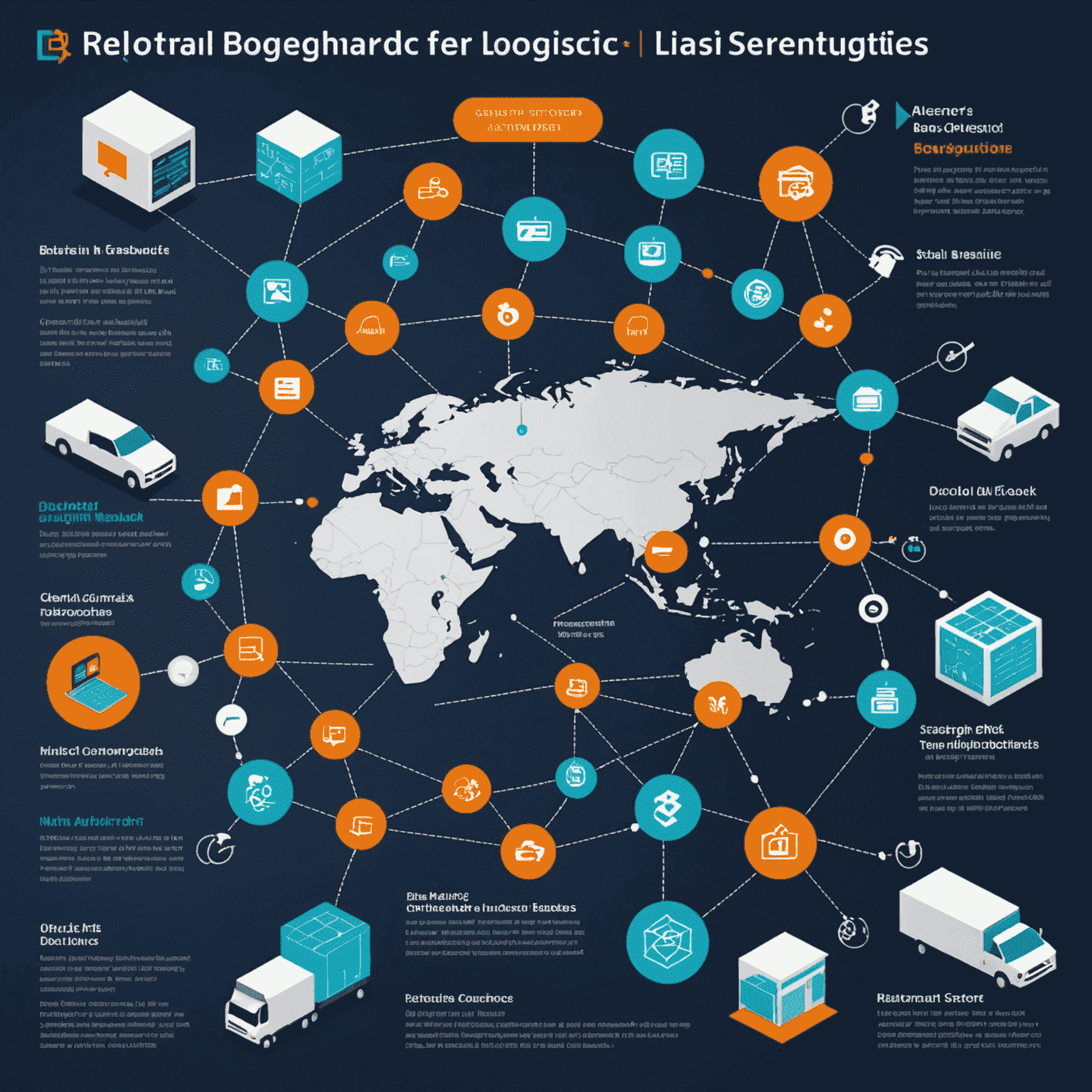Cross-Border Logistics: Optimizing Trade in Southern Africa

In the rapidly evolving landscape of global trade, optimizing cross-border logistics operations has become a critical factor for economic growth in Southern Africa. This article examines strategies for streamlining these operations, with a particular focus on improving trade efficiency between South Africa and its neighboring countries.
The Current State of Cross-Border Logistics
Southern Africa's cross-border logistics face numerous challenges, including:
- Complex customs procedures
- Inadequate infrastructure at border posts
- Lack of harmonized regulations across countries
- Inefficient information sharing systems
These obstacles lead to significant delays, increased costs, and reduced competitiveness for businesses operating in the region.
Strategies for Optimization
1. Digitalization of Customs Processes
Implementing advanced digital solutions, such as those offered by leading consulting firms, can dramatically reduce paperwork and processing times at borders. Electronic documentation and pre-clearance systems can expedite the movement of goods.
2. Infrastructure Development
Investing in modern border facilities and transportation networks is crucial. This includes upgrading road and rail connections, as well as establishing efficient logistics hubs near major crossing points.
3. Regulatory Harmonization
Encouraging collaboration between Southern African nations to align their trade regulations can significantly reduce complexity for businesses operating across borders.
4. Leveraging Technology
Utilizing blockchain and IoT technologies can enhance supply chain visibility and security. Sharepoint consultants can play a vital role in implementing collaborative platforms for seamless information sharing among stakeholders.

Case Study: Beitbridge Border Post
The Beitbridge border post between South Africa and Zimbabwe serves as an excellent example of the potential for optimization. Recent upgrades, including:
- Implementation of a one-stop border post concept
- Introduction of automated customs systems
- Expansion of physical infrastructure
These improvements have resulted in reduced transit times and increased trade volumes, demonstrating the tangible benefits of strategic logistics optimization.
The Role of Consulting in Logistics Optimization
Specialized consulting firms play a crucial role in identifying and implementing optimization strategies. Their expertise can help in:
- Conducting comprehensive assessments of current logistics processes
- Designing tailored solutions for specific cross-border challenges
- Implementing advanced technologies and management systems
- Training personnel and facilitating change management
Conclusion
Optimizing cross-border logistics in Southern Africa is a complex but necessary endeavor. By focusing on digitalization, infrastructure development, regulatory harmonization, and leveraging cutting-edge technologies, countries in the region can significantly enhance trade efficiency. The involvement of expert consulting firms and sharepoint consultants can provide the necessary guidance and technical expertise to navigate these improvements successfully.
As Southern African nations continue to work towards seamless cross-border trade, the benefits will extend beyond just logistics efficiency. Improved trade flows will contribute to economic growth, job creation, and increased competitiveness on the global stage, ultimately leading to prosperity for the entire region.